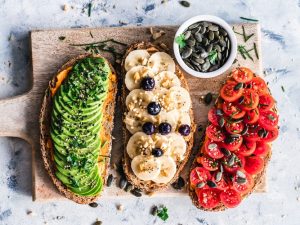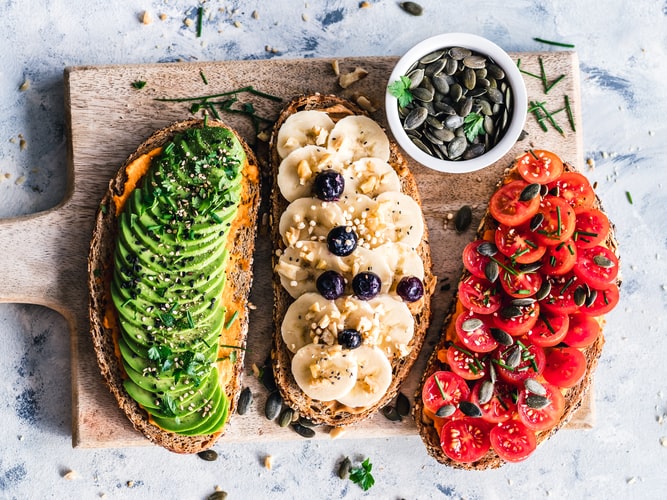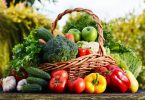There’s an increased awareness about nutrition and health these days. People have become more inclined towards adopting veganism, especially during the pandemic, and more and more people want to follow a plant-based diet.
What exactly is a Plant-Based Diet?
Generally, a plant-based diet comprises a food diet made up of plant food. Often, people use different synonyms like “vegan” diet or a “vegetarian” diet.
Nonetheless, all the interpretations are accurate. A plant-based diet focuses on foods like vegetables, beans, and fruits.
The prime reason is to restrict the consumption of dairy, meats and eggs entirely. Initially, you could limit the intake of non-vegetarian or eliminate them entirely. It’s your call!
It’s not necessary to cut off the intake of seafood and meats. For instance, Mediterranean Diet comprises a plant-based diet, still, it incorporates the consumption of poultry and fish. It says that its prime focus is on plant-based food.
People have started drifting towards a plant-based diet because of tremendous health benefits. There are tons of benefits which you get from a plant-based diet like it helps to reduce the cholesterol level, enhance the fertility rate and reduces the risk of getting diabetes.
Another added benefit, it reduces the risk of contracting any heart disease. Also, it reduces the risk of developing other chronic illnesses.
Besides diseases, it has a good impact on physical and emotional well being and enhances the quality of life.
Complete List of Food Items: What to Consume, Avoid and Restrict
What to Consume:
- Vegetables such as spinach, collard greens, kales, swiss chard, sweet potato, broccoli, asparagus and bell peppers.
- Fruits including- strawberries, watermelon, avocado, grapes, apples, grapefruit, oranges, bananas and blueberries.
- Whole grains like brown rice, whole-wheat bread, quinoa, whole-wheat pasta and faro.
- Nuts like almonds, cashews, walnuts and macadamia nuts.
- Seeds like hemp, flax and chia.
- All lentils
- All beans
- Coffee
- Tea including lavender, ginger, chamomile and green.
What to Restrict (Depends on how much you want you to be strict with diet or can avoid indefinitely):
- Meat and Poultry, such as meat, pork and chicken
- Dairy covering cheese and milk
- Cut off all animal products including dairy, eggs and meat
- Sweets such as brownies, cookies and cake
- Sweetened beverages like fruit juices and soda
- French Fries and Potatoes
- If not vegan, cut off Honey
- Processed animal meat like hot dogs and sausages.
Scientifically Proven Benefits to Adopt a Plant-Based Diet
There are ample benefits behind choosing a plant-based diet, but if still you aren’t convinced, we have listed a few scientifically proven benefits for choosing a plant-based diet above all.
- Like an ideal American diet comprising processed meat, sodium and ingredients high in saturated fat tend to put your health at risk, and longevity. Whereas plant-based food lasts an opposite effect on health.
- Research says, it lowers the medication and minimizes the chances of getting prone to high blood pressure, keeps you fit (lowers the chances of obesity), and even helps to prevent the risk of developing any heart diseases and type 2 diabetes.
- A proper balanced diet includes the consumption of legumes, nuts, fruits, whole grains and veggies. It helps to boost metabolism, keeps you fit and healthy and reduces inflammation in the body. It is also possible to build muscles on a plant-based diet.
There are plenty of benefits and ample options to consider adding plant proteins to your diet.
A 7-Day Wholesome Menu to consider in an Ideal Plant-Based Diet

Day 1
Breakfast
Scrambled Tofu
Lunch
A rice bowl containing corn, avocado, salsa and black beans
Snack
Zucchini chips or chopped raw veggies
Dinner
Veggie topped pizza (Remember filling it with loads of veggies).
Day 2
Breakfast
Muffins made with oatmeals
Lunch
Tomato soup
Snack
Hummus wrap or vegan date brownie
Dinner
Stir-fry veggies with some tofu
Day 3
Breakfast
Home Cooked Oatmeal bars
Lunch
Whole-grain pita bread with a delicious greek salad
Evening Snack
Berries or cashew yoghurt and Peanut butter
Dinner
Tofu curry with kale
Day 4
Breakfast
Burrito topped with pepper and salsa
Lunch
A small side salad with a veggie burger
Evening Snack
Hummus filled with veggies
Dinner
Tomato basil whole-grain pasta
Day 5
Breakfast
Dairy-free yoghurt along with granola and berries
Lunch
Tomato sandwich dribbled with olive oil and pesto
Evening Snack
Roasted chicken peas
Dinner
A small side salad
Day 6
Breakfast
Chia seed pudding topped with berries and a spoonful of almond butter
Lunch
Avocado toast
Evening Snack
3 tablespoon hummus
Dinner
Vegan mushroom enchiladas
Day 7
Breakfast
1 bowl of oatmeal with almond milk
Lunch
A Quinoa bowl with sweet potatoes and roasted carrots
Evening Snack
Whole-grain toast with peanut butter
Dinner
Vegetarian chilli with few sliced avocados
This wholesome diet is a great start towards veganism! It will help you conquer various chronic diseases-if any, and will prevent risks of other chronic illnesses in future.
It also helps to reduce the risk of hypertension, Alzheimer’s and cancer. Compared to an animal diet, a plant-based diet is quite flexible and easy to maintain.
You can easily eliminate the meat products altogether, as it has a variety of options to offer.
It helps to combat the damage caused on earth as animal agriculture has an adverse effect on the environment.
Raising animals solely for meat and dairy constitutes nearly 15% of greenhouse gas emissions.
It also demands gallons of water. By switching to veganism, we can help combat this problem as it would help to prevent hazardous climatic changes.
If global consumption of fruits, vegetables, nuts and legumes can reach up to 50%, there are chances of living a good sustainable life.
The Takeaway
A plant-based diet can be a great approach towards building sustainability with tremendous health benefits.
After enforcing this diet, you’ll start observing significant improvements in your health and you’ll be glad that you did this. Happy Eating!
I hope you found this article informative! Have you started incorporating a plant-based diet? If yes, how? Tell us in the comment section below!
Author’s Bio:
Aayushi Khandelwal is a content writer at F and B Recipes. When not writing, she can be found creating a list of “Things That Make Me Happy” or coming up with creative Food Blog Names. You can find her blog on Instagram, Pinterest or LinkedIn.








